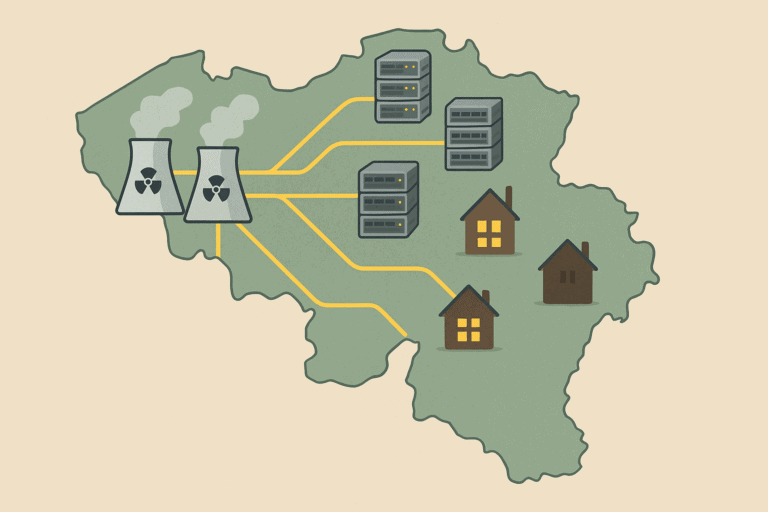The electricity consumption of Belgian data centers will at least triple by 2035 to 10 percent of Belgium’s total consumption. In a scenario with explosive AI growth, consumption could even rise to 15.5 TWh, which is comparable to the output of two nuclear reactors. Last year, Belgian data centers consumed 3.2 TWh.
Belgium is a popular location for the construction of new data centers, which also means that the power consumption of data centers is increasing. Google has been established in Belgium for many years, but its major competitor Microsoft is working hard to catch up in Belgium.
Microsoft overtakes Google with three new data centers
Google will retain the title of largest data center operator on Belgian territory for the time being. However, Microsoft is catching up fast, with three data centers under construction. This expansion will contribute to the expected tripling of electricity consumption over the next ten years.
The Boston Consulting Group report shows that Belgium, with 4 percent of total electricity consumption, is already above the European average of 2 percent. Microsoft’s first Belgian data center will open after the summer and will further increase power consumption.
AI drives demand for ever more computing power
The main reason for this growth is artificial intelligence. AI is creating a high demand for additional data center capacity. In the most optimistic scenario, experts estimate that data center consumption will reach 15.5 TWh in 2035. By way of comparison, the Doel 4 and Tihange 3 nuclear reactors together produce approximately 15 TWh per year.
This development is part of a global trend. Microsoft is investing $80 billion in new data centers worldwide this year alone.
Ten percent of Belgian electricity consumption
Even with average growth in AI applications, data centers are expected to still account for 10 percent of Belgium’s electricity consumption in 2035, which amounts to around 11 to 14 TWh. Total electricity demand in Belgium will therefore rise to between 115 and 140 TWh.
This means that data centers will require one to two nuclear reactors to meet their energy needs. These figures underscore the impact of digitization on energy supply. Belgium, therefore, faces a significant challenge, as Doel 4 and Tihange 3 will be closed and disconnected from the energy grid in 2035. These two nuclear reactors were initially scheduled to close in 2025, but they will remain operational for an additional 10 years. Sufficient alternative capacity must therefore be realized by 2035.
